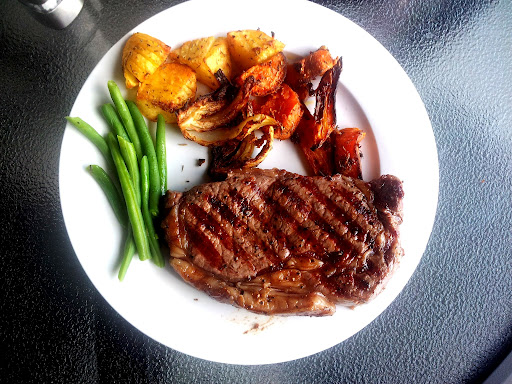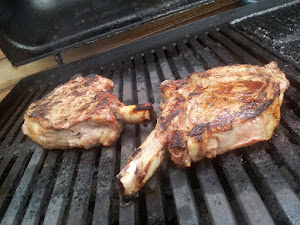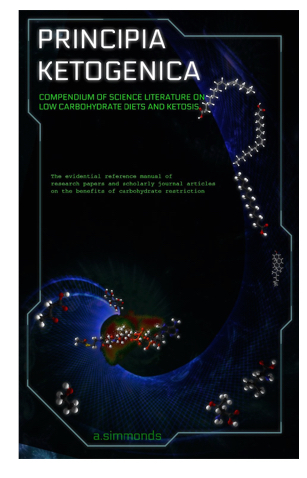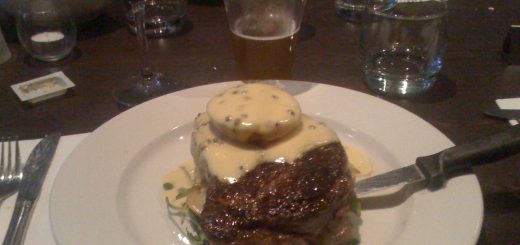High Steaks: Why and How to Eat Less Meat – “live” book review – part 01
Forum discussion here: http://highsteaks.com/forum/whatever/high-steaks-why-and-how-eat-less-meat-live-book-review-104.0.html
This is a book which has the same name as my website, but seems antithetical.
I can’t claim to read it completely unbiased, but I will do my best to remain objective.
So basically this thread will be me reading the book, and my reactions to it in real-time. Which means it may be days/weeks between reads, and will lack science citations if I happen to call BS on a whim based on my own knowledge, but I’ll do my best to keep things civil and sciencey.
Book Description
Publication Date: October 9, 2012
Each year the average North American ingests well over two hundred pounds of animal protein. Meanwhile the global appetite for meat has increased dramatically. But feeding our meat addiction comes at tremendous cost. Maintaining our current level of consumption is ecologically impossible in the longterm and undermines our personal health and community well-being.
High Steaks documents the disastrous consequences of modern large-scale industrial meat production and excessive consumption, including:
*The loss of vast tracts of arable land and fresh water to intensive livestock production
*Increased pollution, loss of biodiversity, deforestation, and accelerating climate change
*The environmental and health impacts of too much animal fat, and of antibiotics and other chemicals in our food.
Timely and compelling, this powerful book offers a modest, commonsense approach to a serious problem, suggesting strategies for all of us to cut back on our consumption of animal products and ensure that the meat we do consume is produced in a sustainable, ecologically responsible manner. At the same time, High Steaks describes progressive food policy shifts that will discourage factory farming and encourage people to eat in ways that support ecosystems and personal health.Eleanor Boyle has been teaching and writing for twenty-five years, with a focus on food systems and their social, environmental, and health consequences. As well as working with organizations aiming for better food policy, she holds an MSc in food policy and is an instructor at the Centre for Sustainability at the University of British Columbia.
I’m just skimming right now – page one she’s going on about humans have never produced nor eaten so much meat.
Um, missing a certain confounder there – we have never had so many humans as we do now. If she means as a percentage of our diet – that is dumb.
Also says “in times past, people generally ate animal products in small quantities or on special occasions”. In all my research I’ve found maybe two ancient civilisations throughout history which were based on gathering – every single other was based on hunting.
“in times past” – like around 1984 when the stupid cholesterol/heart hypothesis was formed? Look how well that worked out…
If her definition of the past is within one generation of our species then she’s in serious logic trouble…
She then goes on to talk about the unsustainability of current meat farming stuff – which I totally agree with.
She talks of how much of the world’s meat is brought up on feedlots, which of course are fed largely by agricultured land.
Therefore the ONLY solution is that we all eat less meat.
How the hell she misses the irony of her own point is befuddling.
People blame cattle/etc as a big problem for the world – BECAUSE they need to eat so much grain, which takes up so much agriculture space.
Erm, how about stop feeding our food animals the stuff they weren’t meant to eat – like grain?
So, if we can’t eat animals as our main food source – what are we meant to rely on? Spidey-sense is saying something to do with “healthy” grains and veggies etc….
Yep – page 9 – she eats veggies, grains, fruits, nuts, a very small amount of meat, and treats herself with popcorn and beer.
Fantastic diet right there.
Says livestock now outnumber humans – this is a bad thing?
ONE SINGLE COW could feed me for a year – if it would keep. A sheep or pig 2-3 months. A chicken a couple days.
If natural-fed ruminant livestock actually outnumbered humans we would have enough food to live forever and in perfect health.
Apparently in “times past” (wtf is that?) our meat was “complemented by high-fiber plant matter”.
Something tells me this woman has never spent a day more than 100m from a supermarket.
“Between the 18th and 19th centuries in Europe, per-person consumption of meat multiplied 100 times.”
Yes, that’s a direct quote.
Not 100% more (2 times more) – 100 times more.
In other words if in the 19th century they ate meat daily – that means they only ate it once every four months in the 18th century. Serious?
I’m on page 17! I really don’t know if I can continue subjecting myself to this rubbish – is it worth it for others who can’t be bothered?







